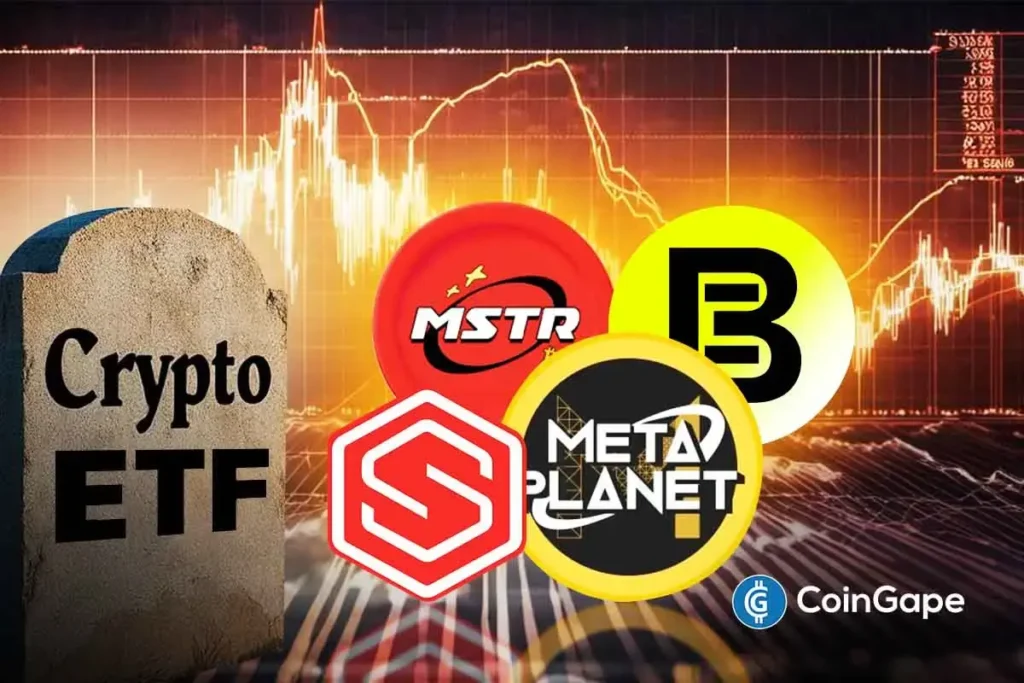The Rise of Crypto ETFs: A Challenge to Digital Asset Treasury Firms
In a rapidly evolving financial landscape, the potential approval of generic listing standards for Cryptocurrency Exchange-Traded Funds (ETFs) has caught the attention of insiders and investors alike, particularly concerning companies like MicroStrategy (MSTR), Metaplanet (MTPLF), and Bitmine (BMNR). Nate Geraci, an ETF expert and President of Nova Dius Wealth, warns that these regulatory changes could significantly threaten the sustainability of digital asset treasury firms. Recent reports from the Wall Street Journal highlight the scrutiny these companies face due to unusual trading activity that has raised alarms among U.S. regulators, including the SEC and FINRA.
Understanding the Landscape: Unusual Trading Patterns in Crypto Treasury Firms
The growing interest in cryptocurrencies has led many corporations to adopt crypto treasury strategies, investing heavily in assets such as Bitcoin (BTC), Ethereum (ETH), and Solana (SOL). According to a Wall Street Journal report, both the SEC and FINRA have started examining trading patterns surrounding stocks of these firms ahead of any significant crypto-treasury announcements. Legal experts have referred to this scrutiny as a precursor to more profound inquiries regarding potential insider trading activities, as articulated by former SEC enforcement lawyer David Chase. Such regulatory pressures reflect a broader effort to ensure transparency and ethical practices in the burgeoning crypto market.
The Impact of ETF Approval on Digital Asset Treasury Firms
Nate Geraci asserts that the SEC’s introduction of new generic listing standards may signal the end of digital asset treasury firms, which have thrived on regulatory arbitrage. With the emergence of approved ETFs, particularly those incorporating staking capabilities, Geraci suggests it might be "game over" for these firms. As the first Ethereum staking ETF launched in the U.S. recently, the ability to directly invest in cryptocurrencies through these ETFs could drastically diminish the appeal of buying stocks in companies heavily invested in crypto.
Investors looking to profit from the crypto landscape might increasingly prefer spot ETFs or the underlying digital assets themselves rather than investing in these treasury firms. With crypto ETFs poised to offer safer and more regulated investment avenues, the justification for investing in firms like MicroStrategy and Bitmine may diminish.
The Bullish Streak: An Unsustainable Rally?
Despite the warnings from experts like Geraci, stocks in the crypto treasury sector have seen a substantial rally in recent months. Investors have flocked to these stocks, driven by a bullish sentiment surrounding the broader crypto market. However, Nate Geraci cautions that this upward momentum may not be sustainable in the long run, especially in light of the shifting regulatory landscape.
Conversely, Bloomberg ETF analyst James Seyffart offered a counter-narrative, suggesting that spot ETFs might not automatically spell disaster for crypto-linked firms like MicroStrategy. He contends that ETFs, up until now, have not fundamentally harmed these firms and that they would likely maintain some level of operational independence, particularly when deploying capital within decentralized finance ecosystems like Ethereum and Solana.
A Divided Landscape: Old versus New Strategies
The divergent views on the impact of crypto ETFs on digital asset treasury firms highlight underlying tensions between traditional investment strategies and innovative new approaches. The considerable capital flowing to these treasury firms has created a perception of resilience and growth potential. Still, as Geraci indicated, the arrival of compliant crypto ETFs may fundamentally reshape investor attitudes and strategies.
The positive perception of crypto treasury firms stems from their ability to generate returns amidst price volatility in the crypto markets. However, with the approval of ETFs that enable investors to gain safer exposure to digital assets, the narrative could shift significantly. This change suggests that firms that have thrived on leveraging crypto assets may find it increasingly difficult to attract investor interest as safer alternatives gain traction.
Looking Ahead: What’s Next for Digital Asset Treasury Firms?
As the regulatory environment continues to evolve, it’s crucial for investors to remain vigilant and adaptable. The potential approval of generic listing standards for crypto ETFs means that traditional investment models associated with digital asset treasury firms may need to evolve rapidly to remain relevant. Companies like MicroStrategy, Metaplanet, and Bitmine will need to rethink their strategies to maintain investor interest amid the shifting sands of regulatory approval for crypto-based ETFs.
Investors should consider diversifying their portfolios and remain cautious about the stocks of digital asset treasury firms. With ETFs providing a more regulated and potentially safer pathway for crypto investment, these firms may find it challenging to sustain their recent growth and relevance in an increasingly competitive market.
In conclusion, the dialogue surrounding crypto ETFs and their implications for digital asset treasury firms is far from settled. As we stand on the brink of potential regulatory shifts, both investors and firms will need to navigate these challenges carefully. The rise of crypto ETFs could very well redefine the landscape, and understanding these dynamics will be paramount for anyone involved in the cryptocurrency market.


